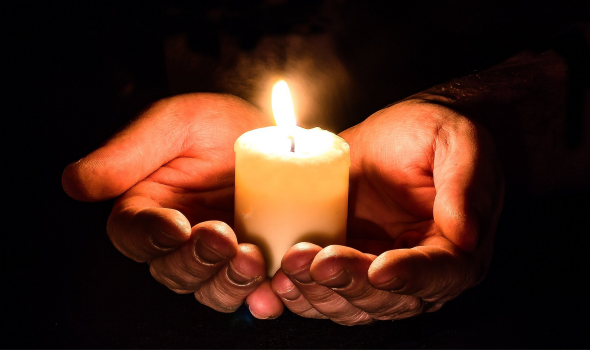Another preventable death
Another preventable death

Another asylum seeker dies in Glasgow – another preventable death?
Mercy Baguma, a young Ugandan mother, was found dead in her flat in Glasgow in August. According to reports, her one-year-old son was found malnourished and crying next to her. Mercy’s death follows that of a young Syrian man, Adnan Olbeh, who died in May, reportedly after his mental health problems worsened after being moved to a hotel during the lockdown.
It’s understood that Mercy was working in a restaurant until her leave to remain (her permission to stay and work in the UK) expired. Her employer had to let her go, because of fear of heavy fines if he was found to be employing people without a work permit. According to Positive Action in Housing, a charity that she had contacted, Mercy had later claimed asylum and was facing severe financial struggles.
Apart from a very few exceptions, asylum seekers in the UK are not allowed to work and are forced to live on £37.75 per person per week.
This payment is to cover all their expenses except housing and utilities. They must pay for food, clothing, transport, medication and any activities they would like to arrange for their children.
This amount is well below what a jobseeker in the UK currently receives – £74.35 per person per week if over 25, and if under, £58.90.
One would rightfully ask, why this is? How is this policy justified? How come asylum seekers are considered to need less money to survive on? A number of charities and activists have questioned this policy over many years – and many have raised the particular urgency for asylum seekers during the Covid-19 pandemic, when financial support for jobseekers has gone up by £20 per week, but support for asylum seekers has gone up just £1.85.
Mercy is reported to have died partly as a result of poverty. She had become dependent on charities and friends for help – even for food – yet because of the lockdown, help could not reach her.
Something has gone seriously wrong here. In a developed country like the UK, surely no one should die in these circumstances.
We can’t only blame Covid-19 conditions for this tragedy. If Mercy had been allowed to work, she could have at least tried to get a job and earn the money she needed for herself and her son.
Last year, while I was working as a researcher at a charity, I conducted a survey with the help of asylum seekers living in Glasgow, as part of the national Lift the Ban campaign. We found that a majority of asylum seekers are not only eager to start working and pay their own way in life, contributing to their societies, but also are highly qualified and skilled.
A lifting of the ban on asylum seekers working could have helped Mercy to be alive today and able to look after her son. It could still help hundreds, if not thousands, of asylum seekers who are currently living in destitution and even prevent more deaths.
Migrant BAME women, including asylum seekers such as Mercy, face complex issues due to layers of prejudice and non-inclusive policies, as well as problems such as extreme poverty, domestic violence, institutional victimisation and long-term mental health illnesses. The solutions are not simple, but lifting the ban on working for asylum seekers would be a big step forward.
I hope and pray that Mercy’s son can heal well from this horrid incident so early in his life, that he won’t become another victim of a vicious cycle of poverty and tragedy – and that no other asylum seekers will face the same poverty and desperation as his mother.
The issues faced by migrant BAME women in the UK, particularly the above-mentioned ones, are explored further in ‘A migrant’s guide to the western galaxy’ by Azadeh Sufiyan, a work of creative non-fiction, available online and at Aye-Aye and Good Press Gallery bookstores in Glasgow.
TOP IMAGE: Manos - Hands, by Jhairo Lug, Flickr (CC BY-SA 2.0)


